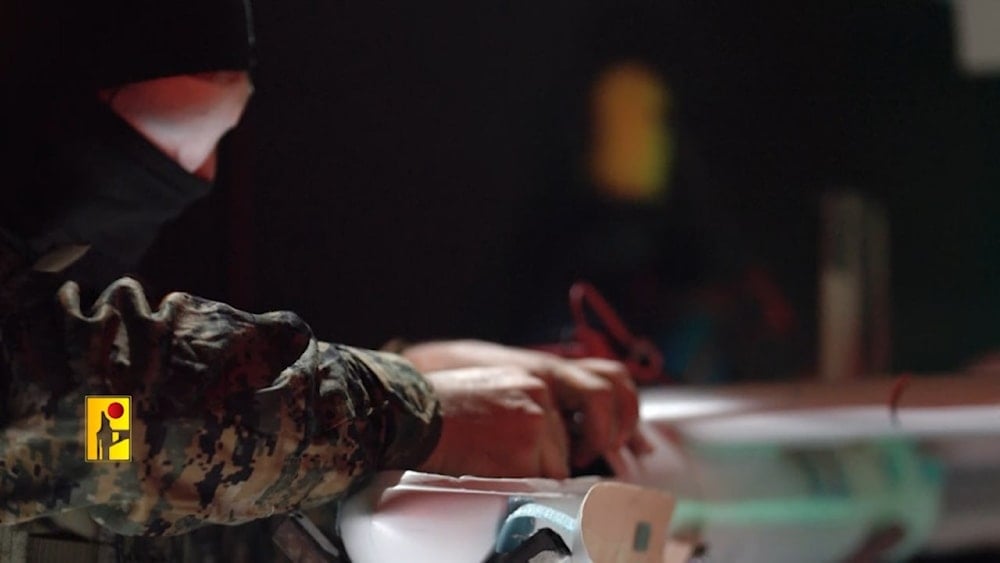'Israel's' defense vulnerable to weather in countering UAVs, missiles
According to Israeli writer Yehoshua Kalisky, detection systems for UAVs, rockets, and missiles often rely on visual and electronic identification, which can be hindered by rain, fog, or clouds.
-

A screen grab shows a Hezbollah Resistance fighter works on preparing a drone (Military media of the Islamic Resistance in Lebanon)
Israeli analyst Yehoshua Kalisky published a commentary on Monday detailing that harsh winter weather in northern occupied Palestine is complicating the occupation's defense systems, particularly in countering the Resistance's UAVs and missiles.
Writing for the Institute for National Security Studies (INSS), Kalisky warned that severe weather conditions can significantly impact Israeli detection, tracking, and interception efforts, raising both operational and security challenges.
UAV flight disruptions
According to Kalisky, strong winds, common in occupied Palestine's northern region during winter, can drastically affect the flight paths of lightweight UAVs, causing them to veer unpredictably.
This not only complicates tracking but also creates psychological strain on settlers who may need to seek shelter across a broader area due to the uncertainty of a UAV's trajectory and potential impact point.
Missile interception complications
Kalisky further noted that the interception of rockets and missiles depends on precise calculations of ballistic trajectories. However, strong winds and other atmospheric disturbances can disrupt the flight paths of both the incoming projectile and the interceptor missile, sometimes resulting in failed interceptions.
Additionally, adverse weather like lightning storms or temperature fluctuations at different atmospheric layers can interfere with radar and optical systems, leading to potential target loss or false alarms.
Read more: Hezbollah drone strike exposes gaps in 'Israel's' air defense: AP
Visibility and detection issues
Kalisky pointed out that detection systems for UAVs, rockets, and missiles often rely on visual and electronic identification, which can be hindered by rain, fog, or clouds. Poor visibility conditions pose a significant challenge to "Israel's" ability to detect and respond to threats effectively, increasing the risk of delays in interception or miscalculations.
Investments in advanced technologies
Recognizing the critical impact of weather on "Israel's" security, the occupation is heavily investing in research and development to address these challenges, Kalisky noted.
Advanced sensors and navigation technologies are reportedly being developed to enhance the detection and tracking of hostile objects even under severe weather conditions.
These innovations aim to ensure the reliability and effectiveness of "Israel's" defense systems in all scenarios. The effectiveness of these new systems however remains uncertain.
Read more: Israeli settlers describe chaos after deadly Hezbollah drone strike

 2 Min Read
2 Min Read








